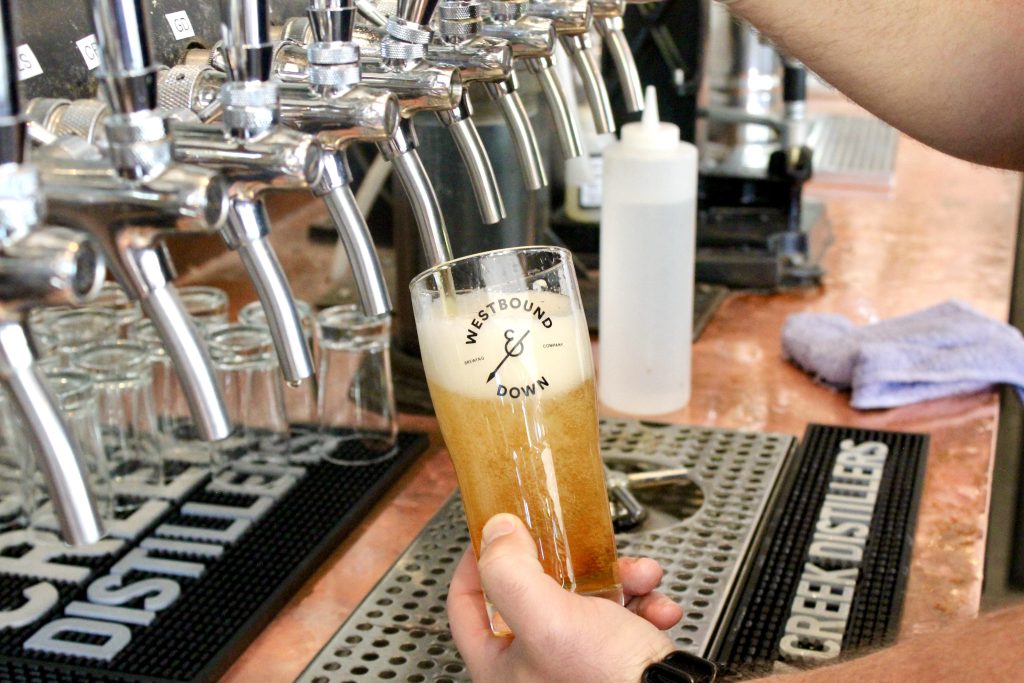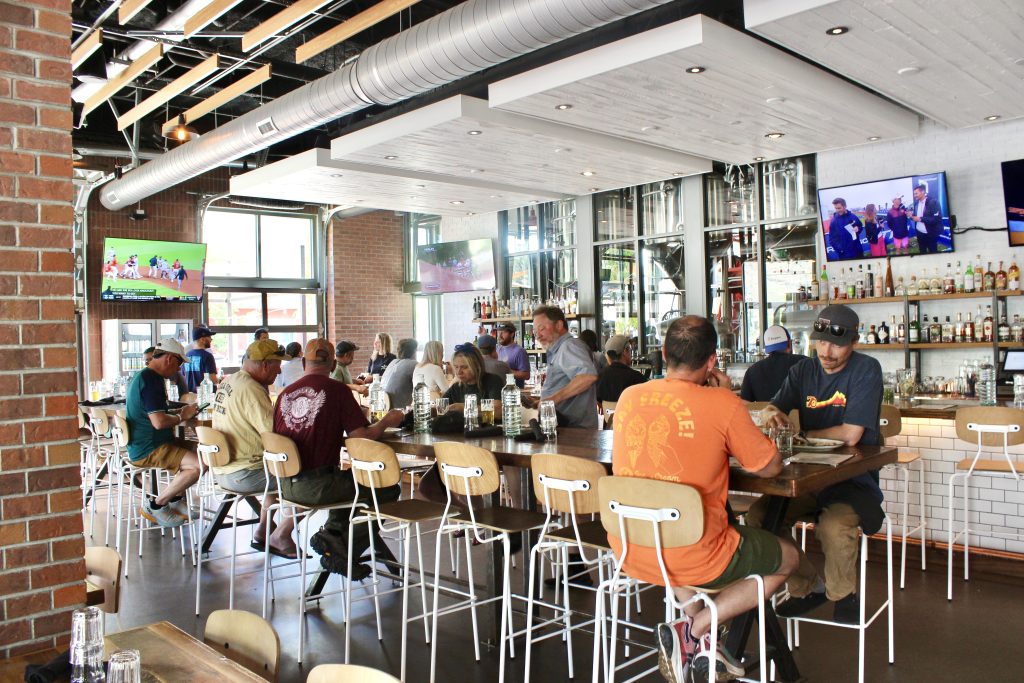Amid closures and financial challenges, Colorado’s mountain brewers are finding new ways to keep pouring
Description
The froth has settled on Colorado’s craft beer boom. As mountain brewers face a new reality, many are adapting their business models to stay afloat.
In 2024, Colorado watched dozens of breweries pour their last pints. Faced with rising costs and shifting tastes, the brewers who are persevering are expanding menus, reinventing taprooms and connecting to their communities as they learn to adapt to a changing environment.
Brewing in Colorado dates back to 1859, before the state was formed. The number of craft breweries grew rapidly starting in the 1990s and reached 456 by 2024, generating millions in economic impact for the state.
Recently, however, a mix of financial challenges and waning appetites has caused several breweries to close down in 2024, with more anticipated to close in 2025.
Nationwide, 2024 marked the first time since 2005 that more breweries closed than opened. Craft beer sales fell 4%, and national surveys revealed fewer Americans were consuming alcohol.
That same year, roughly 50 breweries closed across Colorado, with 28 more closing since the start of 2025 and two more set to close by the end of the year. The opening of new breweries in some of those locations has softened the state’s net loss, however, according to Shawnee Adelson, executive director for the Colorado Brewers Guild.
Since the COVID-19 pandemic hit the state in 2020, Colorado has lost 140 breweries, brewpubs and taprooms, according to the guild. To the relief of many, this isn’t entirely unexpected for the industry.
“Colorado craft beer is a mature market,” Adelson said. “And because of the history of Colorado craft beer — being here since the late 80s — we have entered a maturing market phase of our industry. And with most industries, as you see in more mature markets, there is a leveling out.”
Adelson said that while the guild’s breweries used to see exponential growth year over year, it was clear the growth wouldn’t be sustainable long-term. As a result, there’s been a stabilization in both the number of breweries in the state and the amount of beer being sold based on a combination of challenges.
The ‘rising cost of everything’
<figure class="wp-block-image size-large">
 <figcaption class="wp-element-caption">Westbound & Down in Basalt offers craft beers, food, non-alcoholic drink options and a dog-friendly space, which CEO Jake Gardner says was a strategic move.</figcaption><figcaption>Westbound & Down Brewing/Courtesy photo</figcaption>
<figcaption class="wp-element-caption">Westbound & Down in Basalt offers craft beers, food, non-alcoholic drink options and a dog-friendly space, which CEO Jake Gardner says was a strategic move.</figcaption><figcaption>Westbound & Down Brewing/Courtesy photo</figcaption>While individual breweries face their own unique challenges, one that seems to ripple across the state is the “rising cost of everything.” The increased cost of labor, materials and ingredients has put a financial strain on most mountain businesses, especially following tariffs levied by the Trump administration. Expenses from sky-high commercial real estate leases, insurance and property taxes can sometimes feel like a ticking time bomb.
“That’s the malt, the hops, your CO2, your cans, your labels, all your packaging equipment, all of that is going up,” Adelson said. “Especially when we’ve seen tariffs on aluminum cans coming from Canada.”
Garrett Scahill, co-founder and head brewer at Vail Brewing Company, said the brewery gets some of its malt and hops from Europe, which has made those ingredients more expensive. Materials necessary for repairs are seeing a similar fate, and tariffs on stainless steel are making it more expensive to build an expansion facility.
“The equipment is way more expensive than it used to be. … Even American-made tanks using steel from outside the country, there’s a cost for that,” Scahill said, adding that the brewery has been looking for ways to cut costs internally and shop around for more affordable materials. “It’s hard, because when are you getting to a point where somebody’s like, ‘I’m not willing to pay that much for a beer?'”
Westbound & Down Brewing, with locations in Idaho Springs, Lafayette, Denver and Basalt, distributes its product statewide, which adds another element of expenses to the pile. The company has been able to keep some stability in its pricing structure thanks to long-term contracts with suppliers, though raising prices will eventually be part of the conversation.
“I run a brewery, and no one wants to see a $10 pint. It just feels wrong to me,” said Jake Gardner, CEO and director of brewing operations. “Obviously, at some point it’s going to happen, because that’s what inflation causes. But those are the pressures, trying to meet consumer demands.”
Although beer sales in Colorado fell by roughly 3.2% in 2024, more than 3.2% of breweries closed, meaning that having fewer customers is just one drop in the fountain of larger economic pressures, Gardner said.
Rising rent prices and overall cost of living also translate to a shortage of talented labor for Western Slope breweries, as many struggle to find workers.
“The truth of it is, brewery manufacturing has never been an extraordinarily high-paying job,” Gardner said. “If you take it outside of metro areas where living expenses are more reasonable, you add another piece to it, which is that the cost of living is high.”
For breweries that can find and hire skilled brewers outside of their communities, limited available housing sometimes leads to rejected job offers.
“If you’re trying to recruit somebody from out of the community that you’re hiring in, you can have a job in place, and they’d be willing to take it, but the biggest crutch is where are they going to live?” said Zach Patterson, co-owner of Storm Peak Brewing Company in Steamboat Springs.
Outside of staffing, resort mountain towns can often be a ways away from required services or materials, leading to unexpected delays or closures when something breaks.
“When you’re in Denver and something breaks, there’s always somebody you can call 24/7 to come fix it,” Adelson said. “That’s not necessarily the case in a smaller town, where the one person that might be qualified to fix whatever problem you have … might not be available right away, so there’s just less of a pool to choose from. That does create some backlog and some delays.”
Expanding menus and reinventing taprooms
<figure class="wp-block-image size-large">
 <figcaption class="wp-element-caption">Westbound & Down Brewing’s Basalt location opened in 2024, where Capitol Creek Brewing used to be.</figcaption><figcaption>Westbound & Down Brewing/Courtesy photo</figcaption>
<figcaption class="wp-element-caption">Westbound & Down Brewing’s Basalt location opened in 2024, where Capitol Creek Brewing used to be.</figcaption><figcaption>Westbound & Down Brewing/Courtesy photo</figcaption>Despite the decline in the number of breweries in the state, several others have opened their doors in 2024. Some, particularly on the Western Slope, have found innovative ways to adapt to the challenging environment.
“It’s no longer, ‘Create a brewery, stay in your lane, make good beer and offer chips and pretzels.’ That kind of trend is gone,” Scahill said. “In order to stay relevant, you want to keep people around.”
After starting out as just a taproom, Scahill said Vail Brewing Company is in the process of changing its license to “brewpub and tavern” so that it can serve food options at two of its locations: the EagleVail brewery and a new expansion in Gypsum.
In addition to a tavern tasting room in Vail Village and original brewery in EagleVail, Scahill said Vail Brewing Company is opening a 15,000 square-foot production brewery and tasting room in Gypsum, which will allow the company to add curated craft cocktails and wine to its menu.
“We’re just trying to be well-rounded, in a way, to be able to have an offering for everybody so that we’re more enticing for a group of people,” Scahill said.
Storm Peak Brewing in Steamboat Springs, which recently moved one of its two locations to the Steamboat Grand Hotel near the base of the ski resort, opened a kitchen in July and offers a selection of non-alcoholic beers, local kombucha and soda. Its westside location, while not serving its own food, encourages customers to order food from neighboring restaurants or bring meals from home to enjoy with their beer.
“We kind of rely on our neighbors to the north and to the south to handle food,” Patterson said.
Storm P




